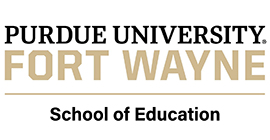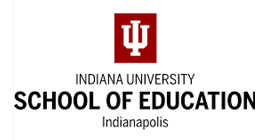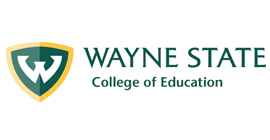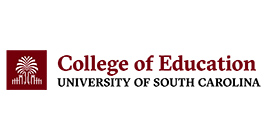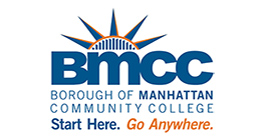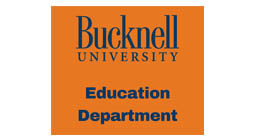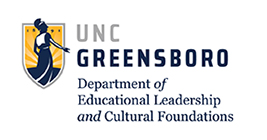TAKE ACTION NOW!
Educators and Scholars Unite for the
DAY OF ACTION AGAINST WHITE SUPREMACY
IN SCHOOLS, COLLEGES, AND UNIVERSITIES
on Thursday, November 19, 2020
Join the American Educational Studies Association (AESA) and more than 2,100 college, university, and K-12 educators, scholars, and organizations to demand investment in anti-racist curricula, policies, and practices in your educational institution.
Here’s what to do, what to send, and how to join us:
THE PROTOCOL (what to do in six easy steps):
- Add your email address, name, title, and institution in the form below (scroll down) to let AESA leadership know that you plan to participate in the Day of Action on November 19, 2020.
- Download the Day of Action letter template and the statement, Educating for Democracy Demands Educating Against White Supremacy: A Statement by U.S. Educators & Educational Scholars as a .docx file.
- At the top of the letter, insert the names, titles, and email addresses of your institutional leaders (for example, your university president and provost, your college dean and department chair, your school principal and district superintendent).
- Consider inserting some information specific to your school, college, or university in the letter (for example, opposing personnel or budget cuts to Educational Studies, African American, Ethnic, or Women’s Studies programs; or more positively, continuing to acknowledge and support the leadership of faculty, staff or programs on campus that are doing this important work).
- At the bottom of the letter, insert your name, title, and email address. Please consider asking your colleagues to co-sign the letter with you or to send their own letter.
- On November 19, email your letter to your leaders!
THE TEMPLATE (what to send):
Copy, paste, and customize the letter template below or download as .docx file.
November 19, 2020
Dear [insert the names of your institutional leaders here]:
In solidarity with the November 19th Day of Action collective, we call on our leaders, colleagues, and partners to affirm the central place that anti-racist policies, practices, and curricula have in our school. We call for an increased commitment to and investment in resources to build the capacity of our school to address racism—as it intersects with colonialism, anti-Blackness, white supremacy, sexism, and other forms of oppression—through personnel, curricula, professional development, programming, and policy interventions. This is a moment when the target of attack is not merely anti-racist education, but the much broader work of educating for democracy. Our school can and must do more to intervene.
In this moment when leaders in our nation’s highest offices are mischaracterizing the goals, content, and outcomes of diversity training and anti-racist education and are threatening institutions that offer such training and curriculum, we believe it is imperative that our school unequivocally articulate and act even more forcefully on our long-standing commitments to democracy and social justice.
The so-called “Executive Order on Combatting Race and Sex Stereotyping,” issued by the White House in late September, has already had a weakening effect in the public sector, the business sector, and academia as well, as schools, colleges, and universities are cancelling trainings and speakers and as they face civil-rights investigations for acknowledging institutional and historical racism. Such retreats from anti-racist work compound decades of censorship and austerity that were already functioning to reduce or eliminate diversity training, affirmative hiring, and anti-racist curriculum and programming for students, particularly in the past decade when schools, colleges, and universities across the country have struggled significantly with declining revenue and resources.
Our institution must step forward with a commitment to expand anti-racist academic programs, extracurricular programming, and support services, and to recruit and support faculty and other personnel that most directly advance these goals, goals that our institution has long claimed to be central to our mission. Specifically, [acknowledge local strengths and insert local issues and demands here]. These commitments mean nothing if we are not prepared to defend them when they are under attack.
In the attached statement, signed by over 2100 educators, scholars, and organizations across the United States, the call to action is made clear: “Our country cannot become more just and democratic without illuminating, addressing, and healing from its long legacies of injustices, including imperialism, colonialism, and racism…. [W]e reject the renewed calls to deny or ignore the legacies and systems of racism that have long defined and shaped U.S. schools and society and that continue to do so. Our job is to teach toward democracy by teaching the truth.” The same must apply in our own institution.
Sincerely,
[insert your name, title, and email address, and the names/titles/emails of cosigners]
STATEMENT
There is wide agreement that U.S. schools should prepare young people for democratic engagement in a diverse world, but there is disagreement about what exactly that should look like. The battle over what story about the United States gets taught in schools and who gets to tell that story is what has made education, particularly history curriculum, one of the main sites of ideological struggle. Today, as has happened repeatedly before, those who insist on teaching only a white supremacist rendition of U.S. history claim that curricula about the historical and systemic nature of race and racism are based on lies, biased, divisive, and un- or anti-American—but research soundly rejects such claims.
Curriculum can never be neutral on issues of diversity because it cannot help but to include only certain events, experiences, perspectives, and actors, while excluding all others. The fact that curriculum is always and necessarily partial requires of any learned individual the capacity and commitment to ask: who or what is included and excluded; what is the story or message that results; and, what is the impact of that underlying story on me and those around me, and in particular, whose interest does it serve? Decades of research has detailed the whitewashed nature of traditional curriculum in U.S. schools and the ways that such curriculum is framed around the perspectives and experiences of white people; is incomplete in its exclusion of the experiences and perspectives of communities of color; and is misleading in its privileging of whiteness as normalized (equating Americanness with whiteness) and normative (equating whiteness with superiority). Further, the traditional curriculum is anti-democratic in its suppression of the central role of dissent, resistance, and revolution in the making of our country and the world. Schools are teaching about race and normalizing whiteness all the time; we just do not always realize that we are doing so, or how.
As a result, students are learning only a limited range of the knowledge and skills needed for critically examining, understanding, and addressing any range of injustices. For example, when schools teach about enslavement, such lessons are often taught without adequate contextualization of broader historical, economic, political, and racial forces; and are largely centered on white experiences and perspectives that emphasize underlying narratives that our society has made much progress when it comes to race and racism. Such lessons rarely connect with ongoing legacies of white supremacy, colonialism, imperialism, and other injustices and their embeddedness through any number of laws and institutions, which is the focus of inquiry in such fields as Critical Race Theory. Without such inquiry, many in the United States today have difficulty understanding, say, the demands of the Movement for Black Lives, the controversies over Confederate monuments and symbols, and the inadequacy of programs meant to alleviate the large and persistent racialized wealth gap when they fail to tackle its structural causes.
The research is clear that a race-conscious curriculum does not fuel divisiveness; on the contrary, it improves cross-racial attitudes and relationships. A race-conscious curriculum does not detract from academics; on the contrary, particularly for students of color, who are now the majority of U.S. K-12 students, it increases learning, retention, and graduation. None of this should be surprising: children and youth bring to school their ongoing experiences with racism, and many welcome curricula that help them name and make sense of those experiences.
Race-conscious curricula about systems and legacies of racism in the United States are not new, nor are attacks on them. Think of the multicultural curriculum of the Civil Rights era and A People’s History of the United States by Howard Zinn, and more recent struggles to include Ethnic Studies curriculum and The New York Times’ 1619 Project initiated by Nikole Hannah-Jones in schools nationwide. Scholars and educators have long argued that curriculum is irresponsible, misleading, and undemocratic when it fails to include the experiences of marginalized groups and the dynamics, systems, and ideologies that caused or perpetuated their disenfranchisement. Not surprisingly, it is curriculum entrenched in white supremacy that gets normalized as objective and neutral, whereas efforts to raise awareness about the discomforting realities of race and racism get dismissed as, in Trump's words, “toxic propaganda” and “child abuse”—or, in the case of the Arizona state legislature’s framing of Ethnic Studies in 2010, as promoting separatism, “resentment toward a race or class of people,” and even “the overthrow of the United States government.”
On September 4th, the White House issued a directive against using taxpayer dollars to support “divisive, un-American propaganda training sessions.” By explicitly flagging trainings about Critical Race Theory and white privilege, the directive illustrated the easy tendency to conflate studying racism with being divisive or weakening the nation. At the September 17th White House History Conference, Vice President Pence warned that, in schools, “some are seeking to erase our history.” President Trump attributed this erasure to “decades of leftwing indoctrination” by the likes of Zinn, even threatening to withhold funding from California schools that teach the 1619 Project. Earlier that day, Education Secretary DeVos praised the 1776 Unites Curriculum for its more positive portrayal of the experience of African Americans when compared to the 1619 Project, and Trump echoed this praise and suggested that the government should support the creation of more such “pro-American” curriculum.
The condemnation of race-conscious curriculum often goes hand-in-hand with calls for “pro-American” curriculum, which is a concept that can veil American exceptionalism or colonialism, and itself has a long history. A year after 9/11, President George W. Bush called for schools to teach patriotism. He argued that students need to learn "the great cause of America;” that “the principles we hold are the hope of all mankind;" and that, “when children are given the real history of America, they will also learn to love America." In the 1980s and 90s, conservative backlash to the multicultural curriculum of the 1960s and 70s and to the publication of Zinn’s A People’s History in 1980 consisted of calls for such things as “back to basics,” “cultural literacy,” and a national curriculum. Almost a century ago, in 1933, Carter G. Woodson’s The Mis-Education of the Negro highlighted the racist nature of curriculum in segregated schools for Black students, not unlike the analyses of racist “Americanization” curriculum in the American Indian Boarding Schools throughout the continental United States in the late 1800s and early 1900s—both types of curriculum served to teach subservience in a white-dominated society.
Our country cannot become more just and democratic without illuminating, addressing, and healing from its long legacies of injustices, including imperialism, colonialism, and racism. As educators and educational scholars who specialize in early-childhood, K-12, and higher education across the United States, we reject the renewed calls to deny or ignore the legacies and systems of racism that have long defined and shaped U.S. schools and society and that continue to do so. Our job is to teach toward democracy by teaching the truth, and we proudly work collectively and in solidarity with the communities most impacted by injustice to do so.
View the current list of collectives, organizations, schools, colleges, and individual educators and educational scholars who have endorsed this statement.
THE FORM (how to join us):
